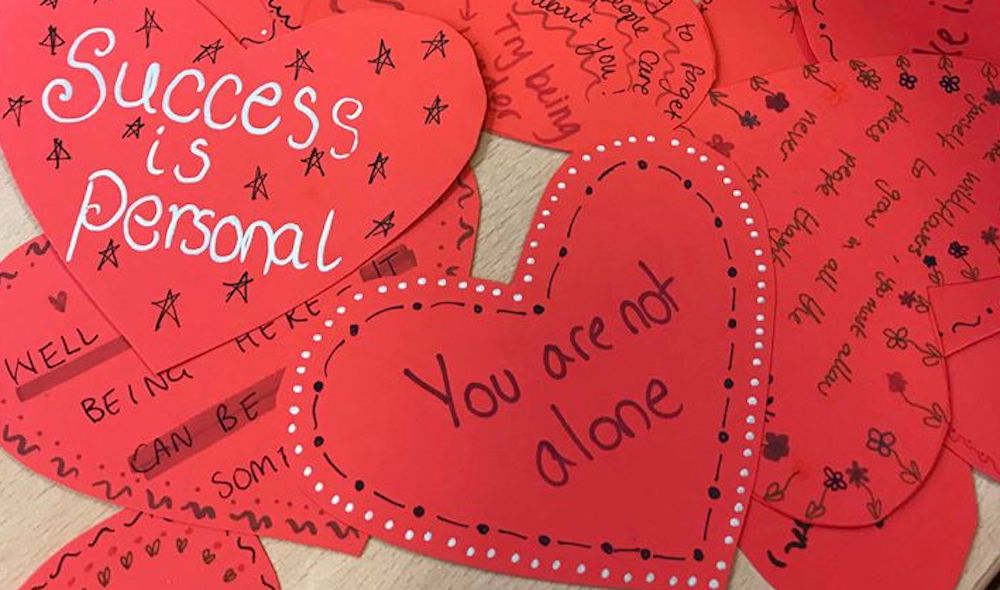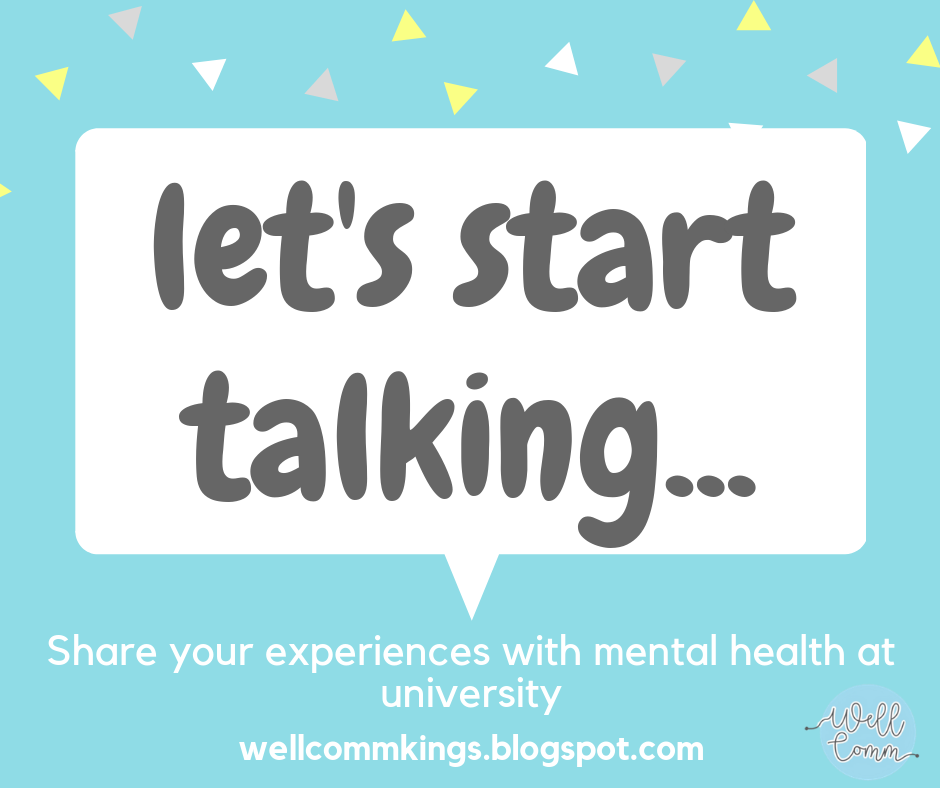
In this mini-series post, Rosie Taylor, a BSc Biological Sciences student and the current Student’s Association LGBT+ Officer, discusses how seeking out peer support is highly beneficial for student wellbeing, and showcases the great work of WellCommKings, a peer support group for students at King’s Buildings…
Sometimes the ‘University Experience’ feels completely overwhelming. It’s no small feat to decide where your degree will take you, or where your interests and passions lie. It’s complicated, and hard. It’s also pretty expensive. In such a competitive and intense environment, support and compassion are the two strongest tools we have. We need to understand the importance of offering them to others and also to ourselves.
As students, our teachers are not only those in our classrooms – our lecturers, professors and tutors – but the people in our friendship groups and homes: our new families, flatmates, lovers, as well as the people we don’t like quite so much. Our peers and mentors are all around us, an integral part of our academic and personal development, shaping the time we spend here, the grades we achieve and the memories we make.
Studies like Good practice in undergraduate peer support, by Kane and Sinka, and An evaluation of a peer support intervention for student mental health by Byrom, have investigated the core values and benefits of peer support. The bottom line is that these interactions (in varied forms) help to improve our mental wellbeing and build long-lasting networks of friendship and mutual support.
Over the past two years, I have been extremely lucky to work with amazing people to found WellCommKings, a peer support group for students studying out at King’s Buildings. This year, we were given the Community Mental Health and Wellbeing Award.

Together, we have built a community with an aim to empower people, signpost to help, talk about the pressures of academic life, and be accepted and respected. A huge realisation in this has been realising how many of us had struggled, and felt that we were alone in doing so.

In my first year, as a queer and disabled student, I built no real connections with the communities around me. I felt a creeping sense that I was never quite bringing my whole self to the table, or that I would be denied a seat if I tried to. I had left behind a difficult home life, taken a year out to begin an ongoing recovery, and was hoping for a fresh start at University with new people. Sometimes, when I was waiting for referrals, treatment, or for hard days to pass, the isolation felt like a physical weight. My work, my sleep schedule and my sense of reality suffered. I felt, like many students do, as though I was dangerously close to becoming a statistic or a headline. I wanted so much to reach out, but I didn’t feel I could.
Talking honestly about our wellbeing is a massive hurdle for people of all ages. Groups like WellComm, and networks of students, aren’t a ‘fix’. But they do help. In building a community that was passionate about wellbeing, honesty and compassion, I discovered sources of support, staff who wanted to help me to achieve and to stay well, groups who encouraged me to appreciate my identity. I felt a part of something bigger.
Mental health and wellbeing take many different shapes, and come in many different forms. We all have varying capacities for self-care, and for giving to others. Some of us – an increasingly vocal group – may have long-term conditions that we learn to live with. Some of us may go through difficult periods, may suffer loss or feel lost.
We can’t leave these issues at the door of the office, the library or the lab. These difficulties will be a part of our bodies and minds in everything we do. I think that in the circles we make, we have the skills, the humanity and the opportunity to look out for one another where we can. Supporting the people around you, and receiving support, can sound like the most simple thing, but is sometimes the biggest step.



Inspiring to see how someone can use what they learned through overcoming adversity in their own life to help others.
What an important and honest article, which shows how important it is for everyone to have somewhere that they can feel safe and listened to. University is a hard time for anyone, and especially so for a student away from their social circle and support network; there is that limbo period while they look for their identity and ‘place’. Support at this time is critical.
The pressure and expectation on our students today is phenomenal, and they need all the help they can get.